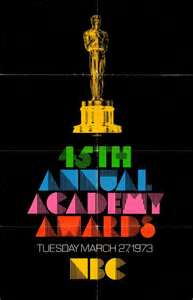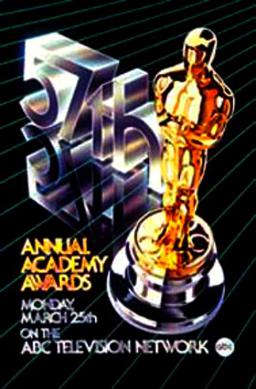
The 69th Academy Awards ceremony, organized by the Academy of Motion Picture Arts and Sciences (AMPAS) took place on March 24, 1997, at the Shrine Auditorium in Los Angeles beginning at 6:00 p.m. PST / 9:00 p.m. EST. During the ceremony, AMPAS presented the Academy Awards in 24 categories honoring films released in 1996. The ceremony, televised in the United States by ABC, was produced by Gil Cates, and directed by Louis J. Horvitz. Actor Billy Crystal hosted the show for the fifth time. He first presided over the 62nd ceremony held in 1990 and had last hosted the 65th ceremony held in 1993. Three weeks earlier, in a ceremony held at the Regent Beverly Wilshire Hotel in Beverly Hills, California, on March 1, the Academy Awards for Technical Achievement were presented by host Helen Hunt.
William Couturié is a film director and producer, best known for his work in the field of documentary film.
Carroll Ballard is an American filmmaker. Originally a documentarian, he became known for directing sweeping, visually-striking films with natural and ecological themes. His body of work includes the films The Black Stallion (1979), Never Cry Wolf (1983), and Fly Away Home (1996).

Alan Splet was an American sound designer and sound editor known for his collaborations with director David Lynch on Eraserhead, The Elephant Man, Dune, and Blue Velvet.
Bruce Harold Broughton is an American orchestral composer of television, film, and video game scores and concert works. He has composed several highly acclaimed soundtracks over his extensive career and has contributed many pieces to music archives, including the 1994 version of the 20th Century Fox fanfare with short versions for 20th Century Fox Television and Foxstar Productions and conducting the Cinergi Pictures logo composed by Jerry Goldsmith. He has won ten Emmy Awards and has been nominated for the Academy Award for Best Original Score. Broughton is currently a lecturer in composition at UCLA.

The 45th Academy Awards were presented Tuesday, March 27, 1973, at the Dorothy Chandler Pavilion in Los Angeles, California, honoring the best films of 1972. The ceremonies were presided over by Carol Burnett, Michael Caine, Charlton Heston, and Rock Hudson.

The 57th Academy Awards were presented on March 25, 1985, at the Dorothy Chandler Pavilion, Los Angeles, and were hosted by Jack Lemmon.

Film Music (1985) is an album originally released on vinyl by the American trumpeter and synthesizer player, Mark Isham.

Never Cry Wolf is a 1983 American drama film directed by Carroll Ballard. The film is an adaptation of Farley Mowat's 1963 "subjective non-fiction" book of the same name. The film stars Charles Martin Smith as a government biologist sent into the wilderness to study the caribou population, whose decline is believed to be caused by wolves, even though no one has seen a wolf kill a caribou. The film also features Brian Dennehy and Zachary Ittimangnaq. It was the first Disney film to be released by the studio under the renamed Walt Disney Pictures label. The film was released on October 7, 1983, for a limited distribution, and in the regular theaters on January 27, 1984.
David Schwartz is an American composer, known for his scoring of the music for several television series. He composed most of the songs for Arrested Development, and he returned as the series composer for the fourth season, which debuted on Netflix.
The 34th Academy Awards, honoring the best in film for 1961, were held on April 9, 1962, hosted by Bob Hope at the Santa Monica Civic Auditorium in Santa Monica, California.
The 29th Academy Awards were held on March 27, 1957, to honor the films of 1956.
Charles Harold Bernstein is an American composer of film and television scores. He is a Daytime Emmy Award winner, and a two-time Primetime Emmy Award nominee. Since 1995, he has been a member of the Board of Governors of the Academy of Motion Picture Arts and Sciences' Music Branch. He has also been a member of the Board of Directors for both the American Society of Composers, Authors and Publishers and the Society of Composers & Lyricists.
Laura Anne Karpman is an American composer, whose work has included music for film, television, video games, theater, and the concert hall. She has won five Emmy Awards for her work. Karpman was trained at the Juilliard School, where she played jazz by day and honed her skills scatting in bars at night.
Bruce Stambler is a sound editor. He won the Academy Award for Best Sound Editing for the drama thriller film The Ghost and the Darkness (1996). This marked both his first win and fifth consecutive nomination in the category, after being recognized for Under Siege (1992), The Fugitive (1993), Clear and Present Danger (1994) and Batman Forever (1995). His work on The Fugitive also earned him the BAFTA Award for Best Sound. In television, his work on the "Brother's Keeper" pilot episode of Miami Vice (1984–1989) earned him the Primetime Emmy Award for Outstanding Sound Editing for a One-Hour Series.
John Douglas Smith is a Canadian sound editor.

Nicholas Britell is an American film and television composer. He has received numerous accolades including an Emmy Award as well as nominations for three Academy Awards and a Grammy Award. He has received Academy Award nominations for Best Original Score for Barry Jenkins' Moonlight (2016) and If Beale Street Could Talk (2018), and Adam McKay's Don't Look Up (2021). He also scored McKay's The Big Short (2015) and Vice (2018). He is also known for scoring Battle of the Sexes (2017), Cruella (2021), and She Said (2022).
Jay Boekelheide is an American sound editor. He won an Academy Award in 1983 for The Right Stuff in the category of Best Sound Editing. His brother Todd Boekelheide is also an Oscar winner, who won for best sound.
Michael Chandler is an American producer, director, writer and editor of feature and documentary films. He produced and directed, with Sheila Canavan, the feature documentary Compared to What? The Improbable Journey of Barney Frank, a Showtime Networks Broadcast Premier and official selection of the Tribeca Film Festival; the PBS Independent Lens feature documentary Knee Deep which one reviewer called, “one of the year's best 'believe it or not' documentaries, a rural Rashomon and a compelling cinematic experience;” and produced & directed Forgotten Fires, a PBS documentary which investigated the burning by Ku Klux Klansmen of Black churches. Bill Moyers said about it: "If we wanted a real dialog about race in America, we'd start with this film." Chandler also produced & directed investigative documentaries for the PBS series Frontline, including Blackout, a collaboration with The New York Times, The Future of War, and Secrets of the SAT.







